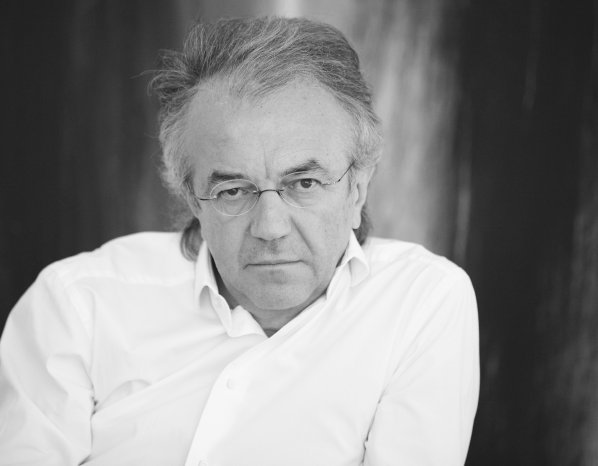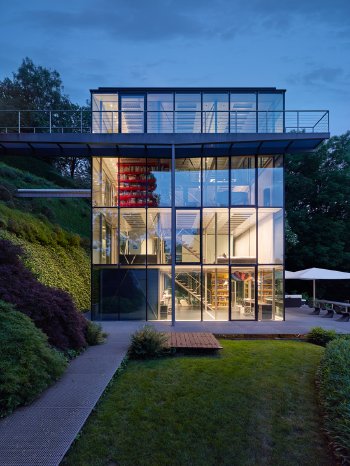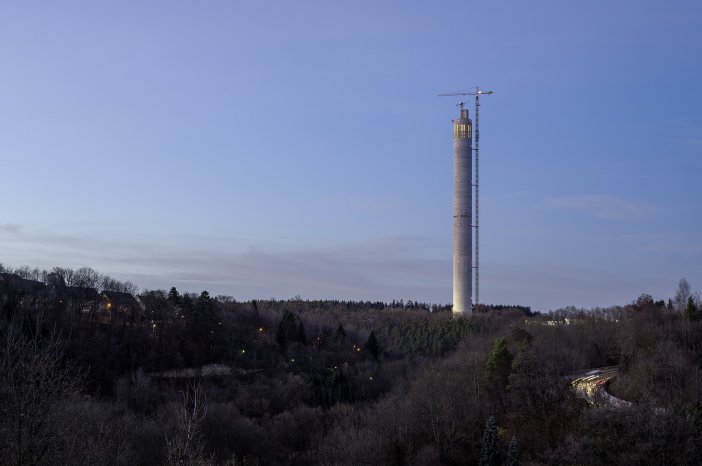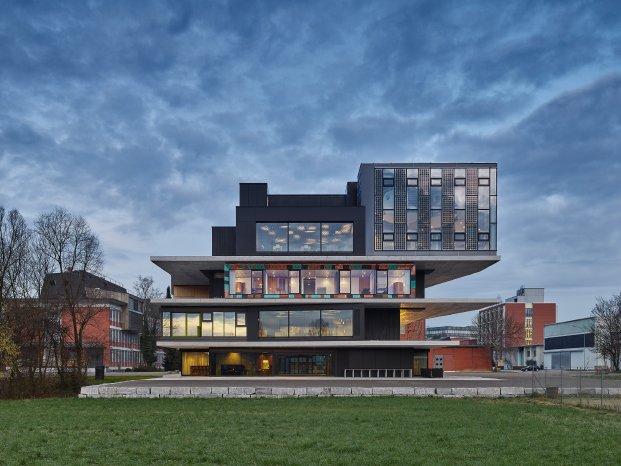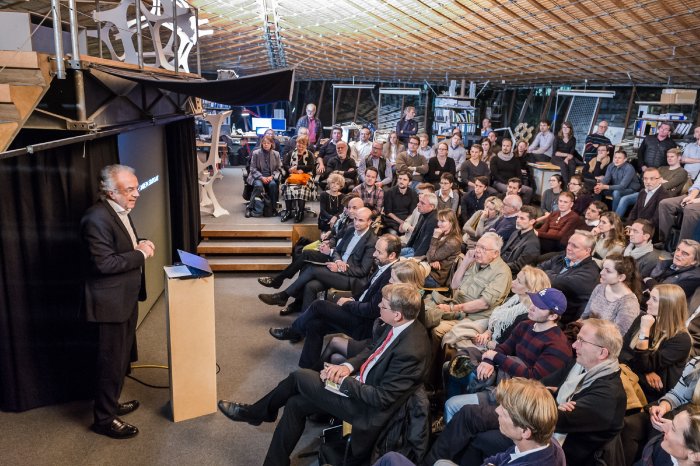Outstanding achievements in the design and construction of the built environment – always governed by the principles of sustainability and the minimisation of energy and material consumption – characterise the work of Werner Sobek. Teaching, research and social engagement also play a major role in his work. All this has led to a great deal of recognition all around the world. On 16 May the renowned architect celebrates his 65th birthday – and just one day later will receive the Balthasar Neumann Award for his latest work, the highly acclaimed thyssenkrupp test tower in Rottweil.
Werner Sobek has an international reputation as a pioneer in the fields of lightweight construction and sustainability. He was honoured for his life‘s work with the Fritz Leonhardt Award back in 2015. Now, just one day after his 65th birthday, he is due to receive the Balthasar Neumann Award 2018. The award, which honours outstanding quality in technology and building culture, will be presented on 17 May at the Würzburger Residenz.
A lot has already been said and written about Werner Sobek in an effort to describe the complex thoughts and actions of the multi-award winning engineer and architect. As the journal "baumeister" commented: "Werner Sobek is a special case as he manages to combine two worlds that normally have a relationship like cat and dog: that of the architect and that of the specialist engineer." And the president of Baden-Württemberg‘s Chamber of Engineers characterises him as a "charismatic engineering personality, in whose work we may discover the future of construction".
Werner Sobek lives and works in Stuttgart, which is also the location of the headquarters of the group of companies he founded in 1992. The Werner Sobek Group is known for engineering, design and sustainability all around the world; the company employees over 300 people and, besides Stuttgart, is also represented in Buenos Aires, Dubai, Frankfurt, Istanbul, London, Moscow and New York. He transferred the management of his company to the next generation some years ago but still exerts his influence and contributes impulses and ideas, as was the case recently, for example, with the UMAR experimental building in Switzerland – a residential unit constructed throughout with the recycling process in the construction sector in mind.
Leaving the conventional approach to urban construction behind
Despite celebrating his 65th birthday, Werner Sobek is still a long way from retreating from active life. He wants to continue contributing to the design of the built environment of the future for years to come: "We are faced with a critical material problem, a mass flow problem, an availability problem. We have to leave the conventional approach to urban construction behind and develop solutions for the emerging demand created by the population explosion," says the visionary.
Creating buildings with lasting appeal and emotional ties
Werner Sobek has always succeeded in setting standards in both pioneering thoughts and deeds. Since the year 2000, he and his family have lived in R128, a 12-meter-high single-room house made of glass, which many publications have praised as the "most radical building of the modern era". "I built it to explore what is possible and in which direction things should go," says the designer. At the same time, his buildings – like his own house – are visionary way beyond the pragmatic aspect of their design and are "breathtakingly beautiful" in their transparency and materiality. Buildings that encourage emotional ties and that have a lasting appealing for future generations. He says that he approaches construction jobs with the same attitude "as when you plant an olive tree for your grandchildren".
Continued engagement in teaching, research and voluntary work
Teaching, research and voluntary engagement play a large part in Werner Sobek‘s work. Since 1994 he has headed Stuttgart University‘s Institute for Lightweight Structures and Conceptual Design (ILEK). He is also the founder and chairperson of aed e.V., a renowned initiative for the promotion of architecture, engineering and design. The SFB 1244 collaborative research centre he initiated at Stuttgart University focuses on the sustainable and resource-saving building of tomorrow. Werner Sobek will head this collaborative research centre for the first four years. The express wish of the German Research Foundation (DFG) was one reason why Werner Sobek postponed his retirement until the year 2021 so that he can support the new collaborative research centre in its first funding period.
